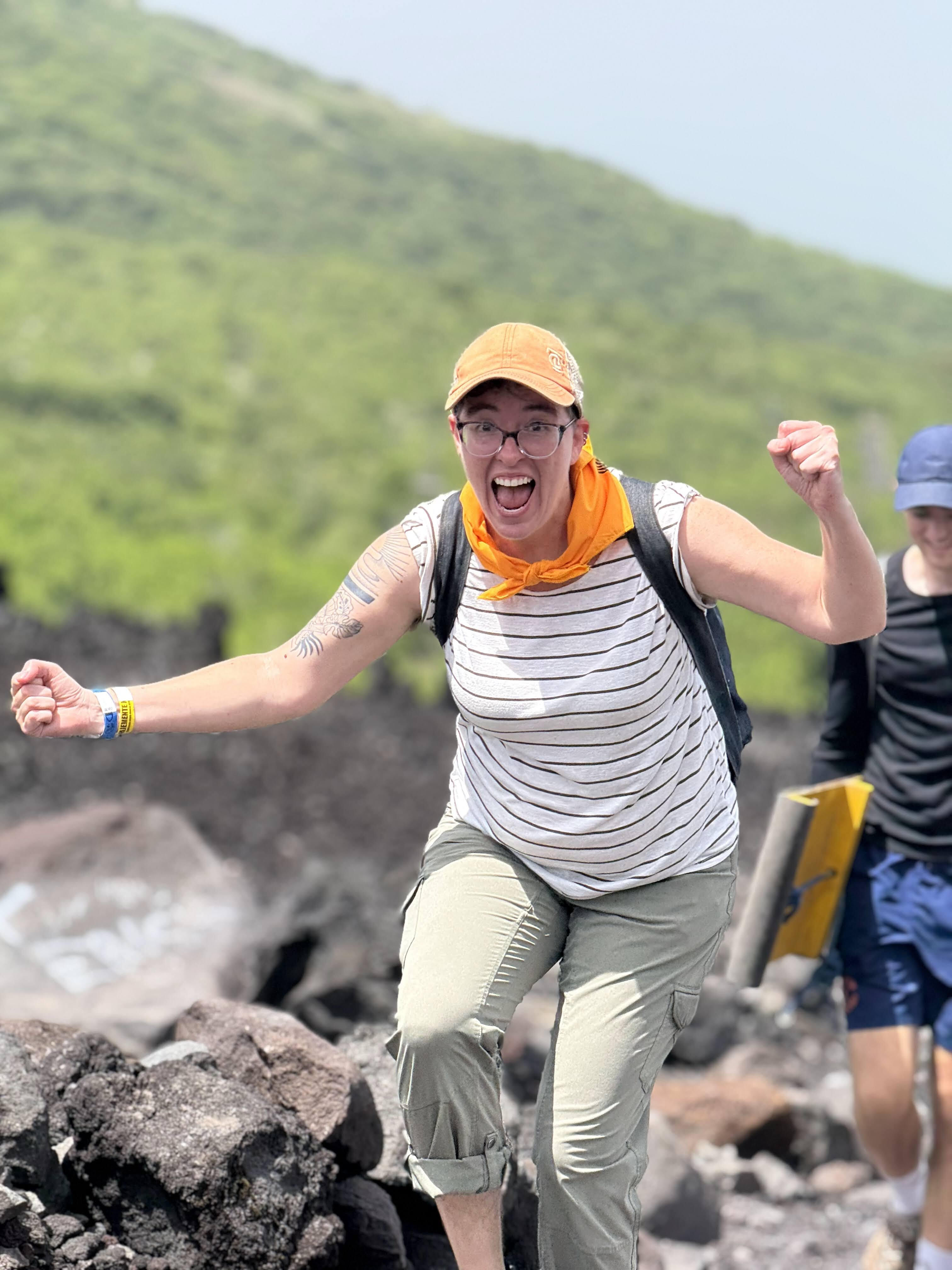From Peace Corps to Podcasts: Laura Lisensky's Global Approach to Science Education

Laura hiking Cerro Negro in Nicaragua.
Laura Lisensky is a dynamic science educator who brings 16 years of teaching experience to her classroom—14 at Lincoln High School. Principal Peyton Chapman personally nominated Laura because she is so talented and versatile, teaching an impressive range of subjects including International Baccalaureate (IB) Biology, Next Generation Science Standards (NGSS) Physics, Environmental Science, IB Environmental Systems and Societies, Gardening, and Astronomy. Currently, she teaches NGSS Biology to juniors and Environmental Science to seniors.
Laura's educational journey began at Earlham College in Richmond, Indiana, where she earned her biology degree, followed by a master's in teaching from Lewis and Clark. Her global perspective was shaped during her Peace Corps service in Benin, West Africa (2002-2004), where she worked as an environmental volunteer with local women's groups and teachers.
Beyond Lincoln's halls, Laura dedicates her summers to training future elementary educators, teaching science methods classes. She's mentored nine student teachers over the years, believing that successful teaching requires collaboration. "This job requires more than one human to be done successfully!" she explains.
What drives Laura's passion for teaching? "I'm constantly learning! If I get bored, it's because I'm doing it wrong." Her greatest challenge remains meeting each student's unique learning needs and providing individualized support.
When not in the classroom, Laura pursues her travel podcast, "Travel Along With Laura," featuring stories from destinations like Nicaragua, often highlighting local cuisine and culture. She also competes in Portland's Celtic Ax league—making last season's city tournament.
Laura's advice to students reflects her teaching philosophy: "Think! Take a risk and take a guess!" She encourages students to value the thought process over finding the "right" answer, fostering the critical thinking skills needed for both scientific discovery and social progress.